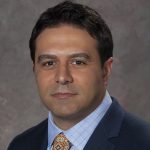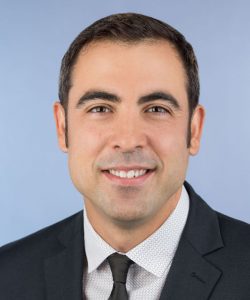 Dr. Shahlaie is a fellowship-trained neurosurgeon that specializes in complex cranial surgery, including epilepsy and movement disorders such as Parkinson’s disease, essential tremor, and dystonia. He also directs the Bronte Research Laboratory at the UC Davis Center for Neuroscience, where his team is developing new deep brain stimulation techniques to improve learning and memory function. Dr. Shahlaie also directs multiple clinical studies at the UC Davis Medical Center, including drug trials for management of traumatic brain injury and brain and nerve stimulation trials to improve cognition in patients with epilepsy and Parkinson’s disease.
Dr. Shahlaie is a fellowship-trained neurosurgeon that specializes in complex cranial surgery, including epilepsy and movement disorders such as Parkinson’s disease, essential tremor, and dystonia. He also directs the Bronte Research Laboratory at the UC Davis Center for Neuroscience, where his team is developing new deep brain stimulation techniques to improve learning and memory function. Dr. Shahlaie also directs multiple clinical studies at the UC Davis Medical Center, including drug trials for management of traumatic brain injury and brain and nerve stimulation trials to improve cognition in patients with epilepsy and Parkinson’s disease.

Dr. Girgis is a specialist in the surgical treatment of epilepsy, the use of Deep Brain Stimulation for the treatment of movement disorders, and the surgical treatment of brain tumors. His research focuses on the neurophysiology of decision-making, with implications for the treatment of various psychiatric diseases using Deep Brain Stimulation. He is also interested in better defining the neural basis of spiritual practices such as meditation, with potential applications in the treatment of epilepsy.

Dr. Saez’s research focuses on the neural basis for decision-making behavior, using a combination of neuroeconomic tasks and invasive intracranial recordings to examine how fast, distributed brain activity supports decision-making. In addition, he studies related cognitive functions (such as learning, memory, or social behavior) and psychiatric conditions characterized by damaged choice behavior (such as addiction, depression, and anxiety).

Dr. Gurkoff’s current research focuses on how brain injuries, such as traumatic brain injury and epilepsy, can lead to alterations in brain connectivity, brain excitability and cognitive dysfunction. He uses advanced in-vivo electrophysiology techniques in rodents to identify systems-level changes in brain function with the goal of developing innovative and efficacious therapeutic interventions for trauma and epilepsy patients suffering chronic cognitive deficits.